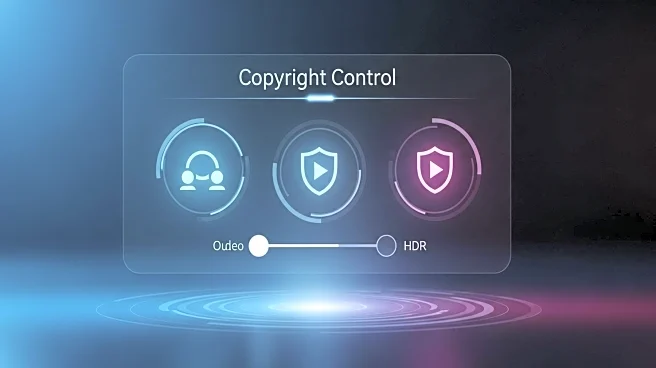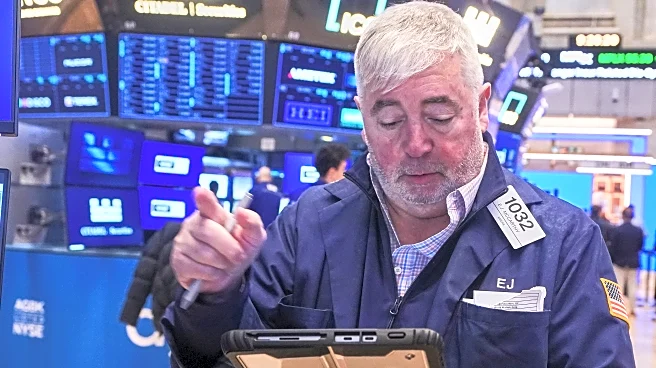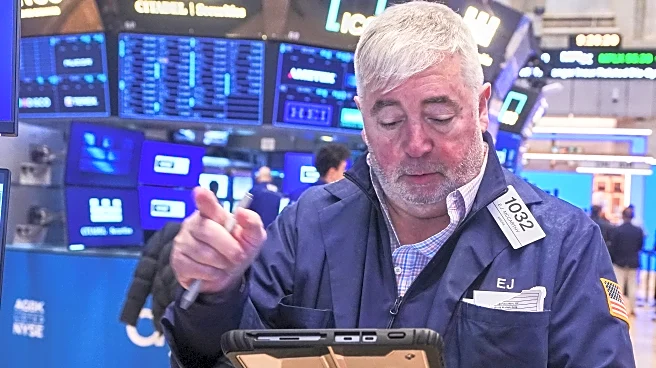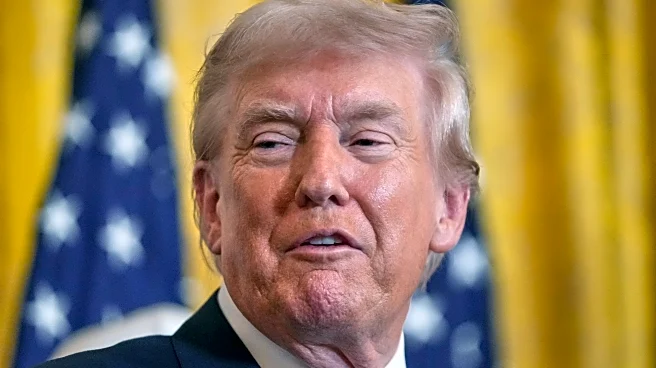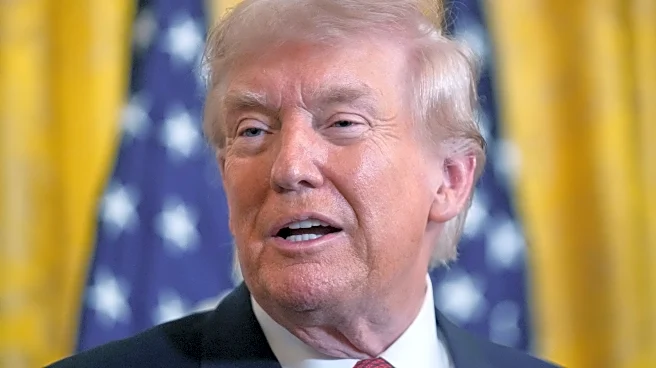What's Happening?
OpenAI is set to introduce new copyright controls in its video app, Sora, following its recent launch. The app, which allows users to create AI-generated videos featuring their digital likeness, has quickly gained popularity despite being invite-only. OpenAI CEO Sam Altman announced plans to give copyright holders more granular control over the use of their intellectual property in Sora-generated videos. This move comes after reports that OpenAI had initially required Hollywood studios to opt out if they did not want their IP included. The new approach will require explicit permission from rightsholders before using copyrighted characters, aiming to prevent unauthorized use. Additionally, Altman hinted at future video monetization strategies, potentially involving revenue sharing with rightsholders.
Why It's Important?
The introduction of opt-in copyright controls in Sora represents a significant shift in how AI-generated content interacts with intellectual property rights. This change could set a precedent for other platforms, influencing how they manage copyright issues in AI-generated media. By allowing rightsholders to specify how their characters can be used, OpenAI is addressing concerns about unauthorized use and potential legal challenges. The monetization aspect, including revenue sharing, could provide new income streams for content creators and studios, fostering collaboration between tech companies and traditional media industries. This development highlights the evolving landscape of content creation and monetization in the digital age.
What's Next?
OpenAI's implementation of opt-in copyright controls is likely to prompt reactions from various stakeholders, including media companies, content creators, and legal experts. Studios and rightsholders may need to evaluate their strategies for engaging with AI platforms, balancing potential revenue opportunities with the protection of their intellectual property. As OpenAI explores video monetization, the industry will be watching closely to see how these models impact content distribution and creator compensation. The success of Sora's approach could influence other tech companies to adopt similar practices, potentially reshaping the relationship between AI technology and media rights.
Beyond the Headlines
The ethical implications of AI-generated content and copyright management are significant. OpenAI's decision to require explicit permission from rightsholders addresses concerns about the unauthorized use of intellectual property, but it also raises questions about the balance between innovation and rights protection. As AI technology continues to advance, the industry must navigate complex legal and ethical landscapes to ensure fair use and compensation for creators. This development could lead to broader discussions about the role of AI in media creation and the responsibilities of tech companies in safeguarding intellectual property.
